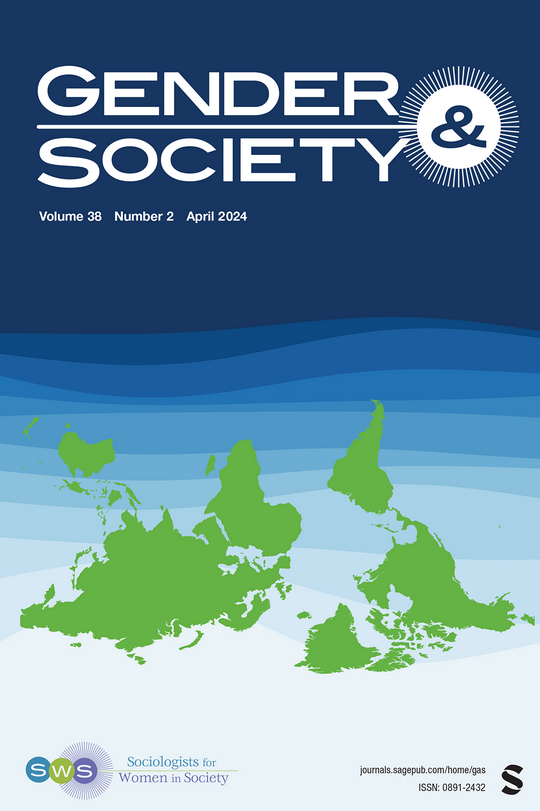Unionized Against Cisnormativity: How Siblings of Transgender Youth Divest from Family Gender Norms
IF 3.4
1区 社会学
Q1 SOCIOLOGY
引用次数: 0
Abstract
Families are a key institution that reproduce and resist gender inequalities. For instance, families can maintain or challenge cisnormativity—a gender structure that erases, marginalizes, and harms trans people. However, beyond studying highly supportive parents of trans children, scholars lack a full understanding of how family members divest from cisnormativity. Furthermore, overfocusing on parents ignores how children and youth, including siblings, also challenge gender norms within families. Using interviews with 52 trans youth, who are mainly trans youth of color, this article examines how siblings of trans youth divest from cisnormativity and help trans youth achieve gender recognition when parents are unsupportive or ambivalent. We find that siblings recognize and support trans youth’s gender through both passive (such as nonchalantly accepting their trans sibling) and active (such as using correct names and pronouns) gender-supportive practices. We also introduce the concept of counterhegemonic accountability to describe how siblings hold accountable family members who misrecognize trans youth’s gender. Together, siblings and trans youth challenge cisnormativity at home and within the broader society. To understand the complex ways gender norms change in and through families and within society, gender scholars need to study sibling relationships.反对反规范的工会:跨性别青年的兄弟姐妹如何脱离家庭性别规范
家庭是生育和抵制性别不平等的关键机构。例如,家庭可以维持或挑战顺性规范——一种消除、边缘化和伤害跨性别者的性别结构。然而,除了研究高度支持跨性别儿童的父母之外,学者们缺乏对家庭成员如何脱离顺性规范的充分理解。此外,过度关注父母忽略了孩子和青少年,包括兄弟姐妹,也会挑战家庭中的性别规范。本文通过对52名跨性别青年(主要是有色人种的跨性别青年)的采访,探讨了跨性别青年的兄弟姐妹如何在父母不支持或矛盾的情况下脱离顺性规范,帮助跨性别青年获得性别认同。我们发现,兄弟姐妹通过被动的(如冷漠地接受他们的跨性别兄弟姐妹)和主动的(如使用正确的名字和代词)支持跨性别青少年的性别。我们还引入了反霸权问责制的概念,以描述兄弟姐妹如何对错误认识跨性别青年的家庭成员负责。兄弟姐妹和跨性别青年一起在家庭和更广泛的社会中挑战顺性规范。为了理解性别规范在家庭和社会中变化的复杂方式,性别学者需要研究兄弟姐妹关系。
本文章由计算机程序翻译,如有差异,请以英文原文为准。
求助全文
约1分钟内获得全文
求助全文
来源期刊

Gender & Society
Multiple-
CiteScore
9.70
自引率
3.60%
发文量
78
期刊介绍:
Gender & Society promotes feminist scholarship and the social scientific study of gender. Gender & Society publishes theoretically engaged and methodologically rigorous articles that make original contributions to gender theory. The journal takes a multidisciplinary, intersectional, and global approach to gender analyses.
 求助内容:
求助内容: 应助结果提醒方式:
应助结果提醒方式:


